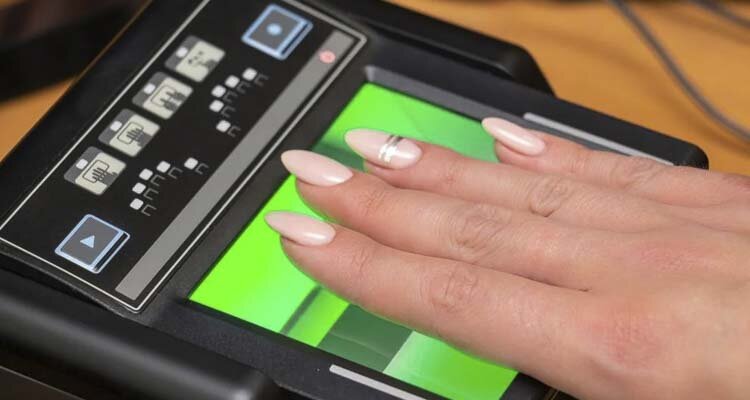
Biometric age verification is a process by which a person’s identity is confirmed online or in-person through fingerprints or facial analysis
TJ Martinell
The Center Square Washington
The Washington State Legislature may consider legislation giving the State Liquor and Cannabis Board further rulemaking authority regarding the use of biometric age verification by private entities selling alcohol or cannabis products.
“I think with the biometrics, it’s just a matter of time before it’s coming in,” Director of Policy and External Affairs Justin Nordhorn told the Senate Labor & Commerce Committee at its Monday meeting. “How we do that is important.
Biometric age verification is a process by which a person’s identity is confirmed online or in-person through fingerprints or facial analysis. Its use is currently permissible in Washington and is used by various companies including Amazon One and CLEAR, which allows airport passengers to use scans of their eyes or fingerprints to skip government security lines once they’ve signed up with a government ID or passport.
In 2017, the Legislature passed House Bill 1493, regulating the commercial use of biometric data. In 2020, the Legislature enacted Senate Bill 6280, which requires state and local agencies that use biometric technologies to adhere to certain requirements, including an accountability report and notifying the Legislature when it intends to use that technology.
However, while biometric age verification under existing state law may be used to supplement, it cannot be used as the sole form of identification in lieu of a driver’s license of state-issued ID.
Nordhorn told the committee that “we’re pretty neutral on the concept of biometric, but there are some challenges that we see and there are also some risk issues.”
He noted, “Facial recognition, it’s not necessarily equitable across the board,” with one company reporting a 10% failure rate to successfully identify a person. If many people leave their credit cards and IDs at home as the use of that technology becomes more mainstream, it could create issues if biometric age verification is required but fails to recognize the person, he added.
Nordhorn said that one of the easiest places to implement the technology would be grocery chains that, like Fred Meyer, already require all customers purchasing alcohol products to have their driver’s license scanned.
However, he added that “when we’re looking at oversight of that technology, is there any audit functions or reporting options that probably need to be considered? If you’re having these types of scans or all of your personal ID provided to somebody, what are the security? Does the state have access to it or not?”
Nordhorn said the lack of rulemaking authority is why “we don’t believe we’re in a good position to develop those rules,” adding that the State Department of Licensing would need to be involved in the discussions.
When Sen. Drew MacEwen, R-Shelton, inquired whether the Legislature or the state board would have to figure out the practical, logistical and security issues, Norhorn said “we don’t have to have all the answers.”
One lawmaker to express reservations was Sen. Steve Conway, D-Tacoma, who said, “I’m concerned about getting so many different ways of age verification, that we lose control over it.”
The State Liquor and Cannabis Board first took up the issue in June in response to a request from Claire Mitchell, a partner at the law firm Stoel Rives, which represents food and beverage businesses that serve alcohol, to amend five different sections of state law.
This report was first published by The Center Square Washington.
Also read:
- Rep. John Ley supports C-TRAN Bus Rapid Transit to save Washington moneyRep. John Ley praised C-TRAN’s new BRT line as a faster, lower-cost alternative to light rail, urging support for transit options that save taxpayers money and improve service.
- C-TRAN, WSU Vancouver celebrates groundbreaking for The Vine on Highway 99C-TRAN and WSU Vancouver broke ground on the Vine’s Highway 99 route, a 9-mile bus rapid transit line connecting the university to downtown Vancouver and the Waterfront, set to open in 2027.
- Letter: The Charterist III — Concerning the powers of the Legislative BranchJohn Jay continues his Charterist series, arguing that Clark County’s legislative branch is structurally weak and lacks the resources to balance the executive, calling for reform in the next charter review.
- C-TRAN board again postpones vote on light rail operations and maintenance costsThe C-TRAN board again postponed a vote on language regarding operations and maintenance costs tied to light rail expansion, with pending lawsuits involving Michelle Belkot continuing to impact board actions.
- Opinion: ‘Today’s Democratic Party is not our father’s Democratic Party’Editor Ken Vance reflects on how today’s Democratic Party diverges from the values he associates with his father’s generation, citing issues like taxation, gender policies, and shifting ideology in Washington state politics.
- Opinion: ‘The Interstate Bridge project lacks billions in funding from both Oregon and Washington’Lars Larson criticizes Oregon’s funding decisions, highlighting the billions missing from both states for the Interstate Bridge replacement project and calling it a dead-end effort lacking Coast Guard approval.
- Court rules against Save Vancouver Streets A judge has ruled against Save Vancouver Streets in its legal effort to place a street-use initiative on the ballot. The group is considering whether to appeal.











